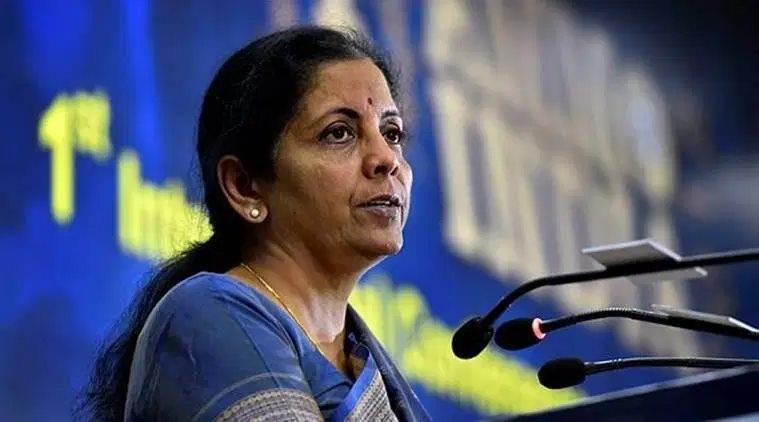FM takes stock of economy in 1st FSDC meet after Covid outbreak
It highlighted the need for the government and regulators to remain vigilant on financial conditions that could expose systemic vulnerabilities.
 Finance Minister Nirmala Sitharaman. (File Photo)
Finance Minister Nirmala Sitharaman. (File Photo)
The Financial Stability and Development Council (FSDC), at its meeting chaired by Finance Minister Nirmala Sitharaman on Thursday, noted that the COVID-19 pandemic poses a serious threat to the stability of the global financial system, as the ultimate impact of the crisis and the timing of recovery remains uncertain at this point of time.
It highlighted the need for the government and regulators to remain vigilant on financial conditions that could expose systemic vulnerabilities. The Council stressed that the government and regulators would continue to provide liquidity and capital support to domestic financial institutions.
“While decisive monetary and fiscal policy actions aimed at containing the fallout from the pandemic have stabilised investor sentiment in the short run, there is a need to keep a continuous vigil by government and all regulators on the financial conditions that could expose financial vulnerabilities in the medium and long-term. The efforts of the government and regulators are focused on avoiding a prolonged period of dislocation in financial markets,” according to a Finance Ministry statement.
The FSDC, which is a council of the country’s financial sector regulators, also reviewed the liquidity and solvency position of non-banking financial companies, housing finance companies and micro-finance institutions. These institutions have been severely hit by the economic lockdown enforced to tackle spread of Covid-19. Moratorium on loan payments have put a pressure on inflows of these companies while banks have turned risk averse in lending to them. NBFCs have sought that they should also be allowed moratorium on their dues to banks.
A Council of financial sector regulators stressed the need to remain extremely vigilant in the wake of the Covid-19 pandemic’s impact on financial markets. It reviewed the pain points in the financial system, including liquidity and solvency levels of financial sector entities. The Council’s commitment that the government and regulators would stand ready to provide liquidity and capital support to financial institutions will provide comfort to the markets, which are rattled by the extreme volatility since March.
The 22nd meeting of the FSDC, which was held through video conferencing, reviewed issues relating to market volatility, domestic resource mobilisation and capital flows. Stock markets fell sharply in March on expectation of COVID-19 spreading across the country and the nation-wide lockdown imposed to contain it. Markets subsequently recovered part of the losses in April and May.
The banking sector has been particularly affected as uncertainty in the economy pushed people and companies to opt for moratorium in loan payments. While much of the Atmanirbhar Bharat package is dependent upon aggressive lending by banks and financial institutions, RBI data shows a near collapse of industry demand for bank credit since 2016. While the bank credit outstanding to the industry grew marginally by 0.7 per cent to Rs 29.05 lakh crore in the year ended March 2020, over last four years, credit outstanding to the industry has expanded by just Rs 1,74,451 crore, or at a CAGR of 1.56 per cent.
The government expects credit deployment to pick up pace when firms come forward to take disbursement of sanctioned loans as the lockdown eases. Apart from top Finance Ministry and regulatory officials, the meeting was attended by Ajay Tyagi, Chairperson, Sebi; Subhash Chandra Khuntia, Chairperson, Irdai; Supratim Bandyopadhyay, Chairperson, Pension Fund Regulatory and Development Authority and MS Sahoo, Chairperson, Insolvency and Bankruptcy Board of India.



- 01
- 02
- 03
- 04
- 05




























